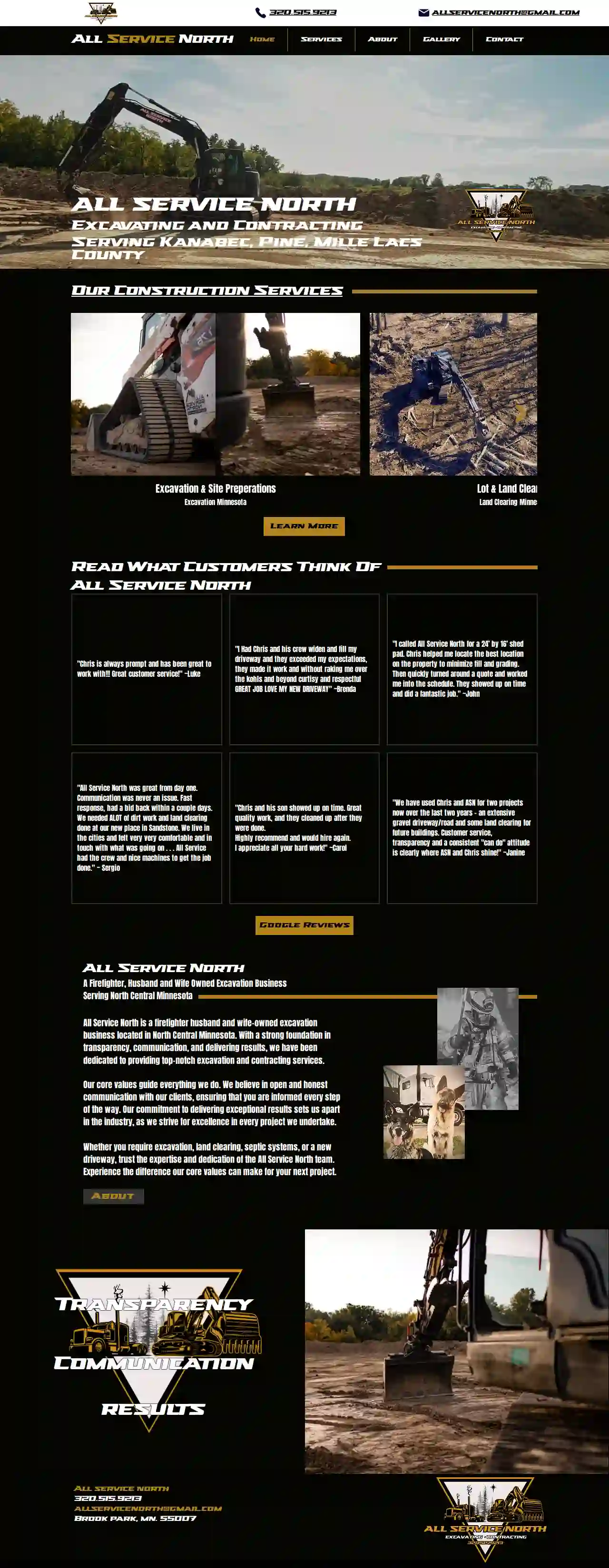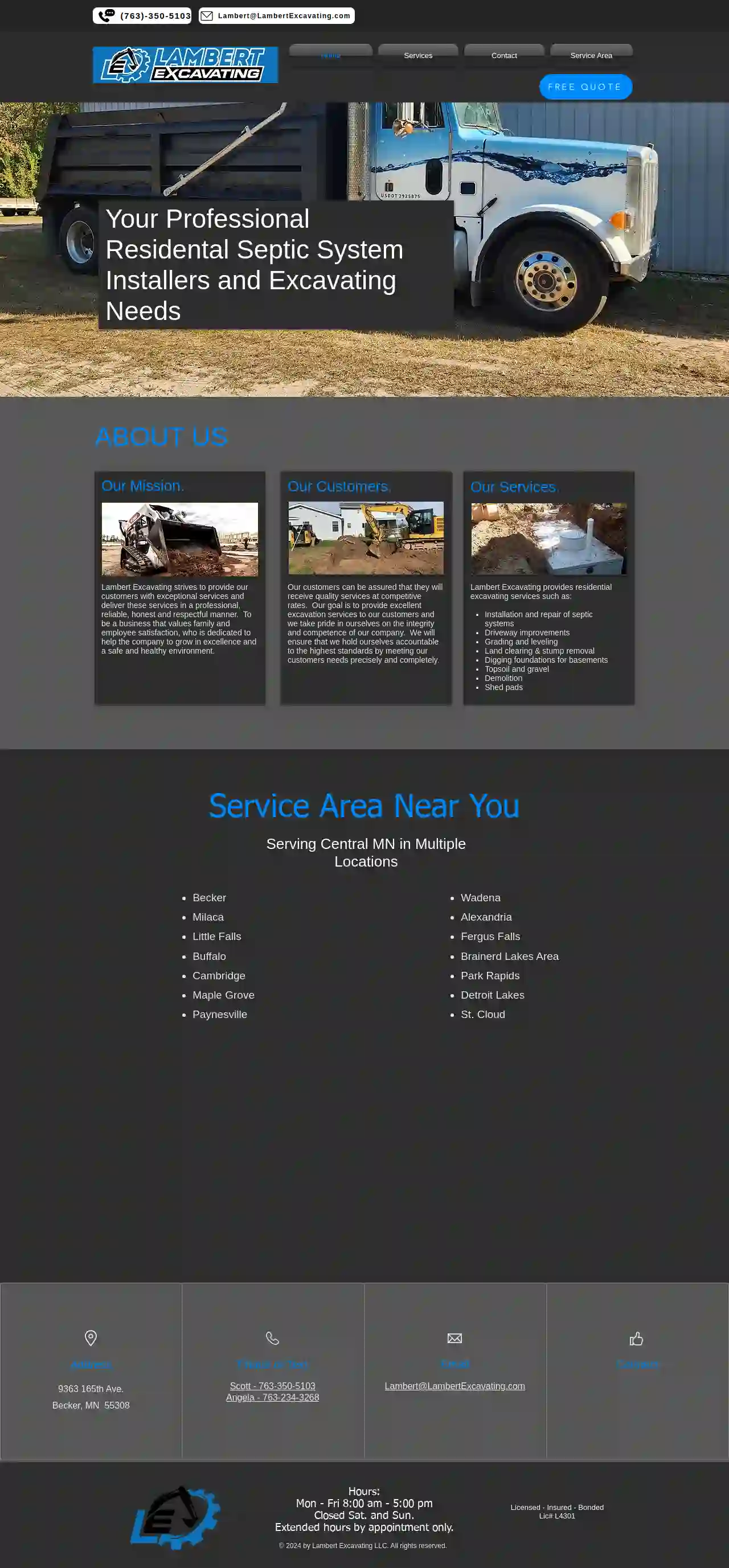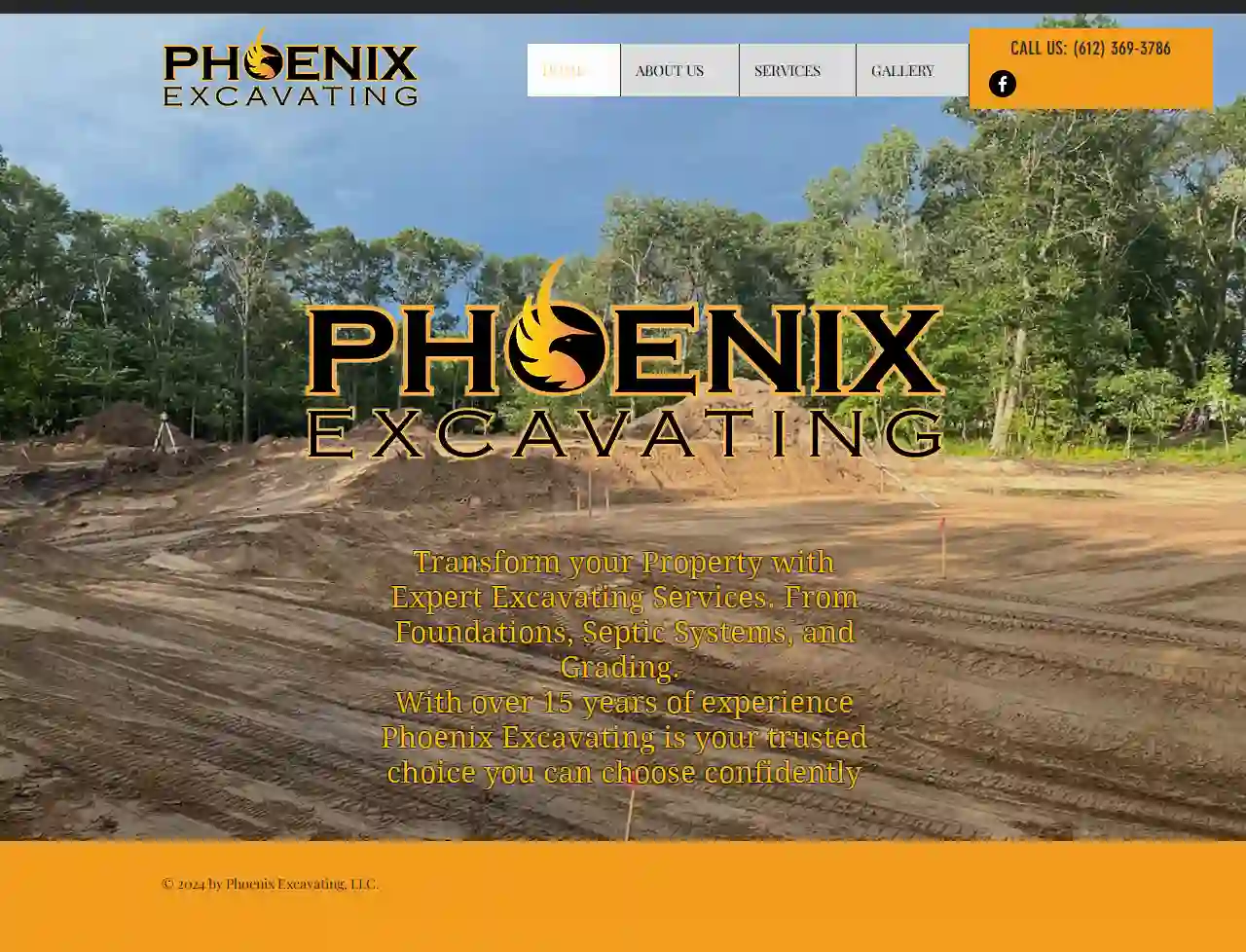Demolition Contractors Minneapolis
Find the best Demolition Contractors in Minneapolis
Receive multiple Demolition Companies quotes for your project today! Compare profiles, reviews, accreditations, portfolio, etc... and choose the best offer.
- No
NorthLand Dirt
1Minneapolis, US- Services
- Why Us?
- Gallery
Get Quote 
All Service North - Excavating, Grading and Septic
542 reviewsBrook Park, 55007, USAll Service North A Firefighter, Husband and Wife Owned Excavation Business Serving North Central Minnesota All Service North is a firefighter husband and wife-owned excavation business located in North Central Minnesota. With a strong foundation in transparency, communication, and delivering results, we have been dedicated to providing top-notch excavation and contracting services. Our core values guide everything we do. We believe in open and honest communication with our clients, ensuring that you are informed every step of the way. Our commitment to delivering exceptional results sets us apart in the industry, as we strive for excellence in every project we undertake. Whether you require excavation, land clearing, septic systems, or a new driveway, trust the expertise and dedication of the All Service North team. Experience the difference our core values can make for your next project.
- Services
- Why Us?
- Testimonials
- Gallery
Get Quote
His Workmanship - Minneapolis
4.6179 reviewsMinneapolis, US- Services
- Why Us?
Get Quote
Lambert Excavating LLC
51 reviewsMinneapolis, US- Services
- Why Us?
Get Quote
Phoenix Excavating
51 reviewsMinneapolis, USTransform your Property with Expert Excavating Services. From Foundations, Septic Systems, and Grading. With over 15 years of experience Phoenix Excavating is your trusted choice you can choose confidently.
- Services
- Why Us?
- Gallery
Get Quote
Over 3,943+ Excavation Pros in our network
Our excavation contractors operate in Minneapolis & beyond!
ExcavationHQ has curated and vetted the Best Excavation Businesses near Minneapolis. Find a top & trustworthy pro today.
Frequently Asked Questions About Demolition Contractors
- Site Security: Secure the demolition site with fencing and warning signs to prevent unauthorized access.
- Personal Protective Equipment (PPE): Workers should wear appropriate PPE, including hard hats, safety glasses, gloves, and steel-toe boots.
- Hazardous Material Removal: Properly identify and remove asbestos, lead paint, or other hazardous materials before demolition begins.
- Utility Disconnections: Disconnect all utilities, such as electricity, gas, and water, before demolition.
- Controlled Demolition Techniques: Employ controlled demolition methods to minimize risks and ensure the structure comes down safely.
- Dust Control: Implement dust suppression measures, such as water spraying or misting, to reduce airborne particles and protect air quality.
- Emergency Planning: Have an emergency plan in place, including communication protocols and evacuation procedures, in case of unforeseen events.
- Implosion: Using explosives to collapse a structure inwards rapidly. Suitable for large buildings in open areas.
- Wrecking Ball: Swinging a large steel ball to impact and break down the structure. Effective for bringing down walls and other solid elements.
- High-Reach Demolition: Utilizing specialized excavators with extended arms and demolition attachments for dismantling tall structures piece by piece.
- Selective Demolition: Removing specific parts of a building while preserving other sections. Often used in renovation projects.
- Deconstruction: Carefully dismantling a building to salvage reusable materials, reducing waste and environmental impact.
- Feasibility Studies: Assessing the viability and challenges of a demolition project.
- Demolition Planning: Developing demolition plans, including method selection, sequencing, and safety procedures.
- Permitting Assistance: Navigating the demolition permitting process and ensuring compliance with regulations.
- Hazardous Material Surveys: Identifying and managing hazardous materials, such as asbestos and lead paint.
- Cost Estimating: Providing accurate cost estimates for demolition services.
- Project Management: Overseeing the demolition process and ensuring it proceeds as planned.
Can I do demolition myself?
What are the safety precautions for demolition?
What are the different types of demolition?
What is the role of a demolition consultant?
Can I do demolition myself?
What are the safety precautions for demolition?
- Site Security: Secure the demolition site with fencing and warning signs to prevent unauthorized access.
- Personal Protective Equipment (PPE): Workers should wear appropriate PPE, including hard hats, safety glasses, gloves, and steel-toe boots.
- Hazardous Material Removal: Properly identify and remove asbestos, lead paint, or other hazardous materials before demolition begins.
- Utility Disconnections: Disconnect all utilities, such as electricity, gas, and water, before demolition.
- Controlled Demolition Techniques: Employ controlled demolition methods to minimize risks and ensure the structure comes down safely.
- Dust Control: Implement dust suppression measures, such as water spraying or misting, to reduce airborne particles and protect air quality.
- Emergency Planning: Have an emergency plan in place, including communication protocols and evacuation procedures, in case of unforeseen events.
What are the different types of demolition?
- Implosion: Using explosives to collapse a structure inwards rapidly. Suitable for large buildings in open areas.
- Wrecking Ball: Swinging a large steel ball to impact and break down the structure. Effective for bringing down walls and other solid elements.
- High-Reach Demolition: Utilizing specialized excavators with extended arms and demolition attachments for dismantling tall structures piece by piece.
- Selective Demolition: Removing specific parts of a building while preserving other sections. Often used in renovation projects.
- Deconstruction: Carefully dismantling a building to salvage reusable materials, reducing waste and environmental impact.
What is the role of a demolition consultant?
- Feasibility Studies: Assessing the viability and challenges of a demolition project.
- Demolition Planning: Developing demolition plans, including method selection, sequencing, and safety procedures.
- Permitting Assistance: Navigating the demolition permitting process and ensuring compliance with regulations.
- Hazardous Material Surveys: Identifying and managing hazardous materials, such as asbestos and lead paint.
- Cost Estimating: Providing accurate cost estimates for demolition services.
- Project Management: Overseeing the demolition process and ensuring it proceeds as planned.